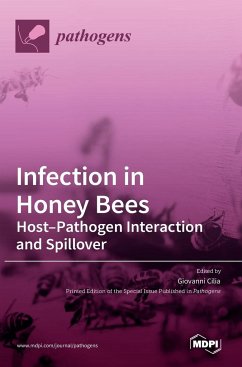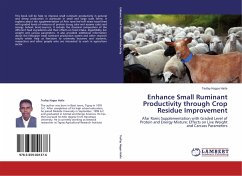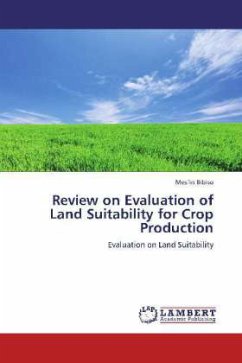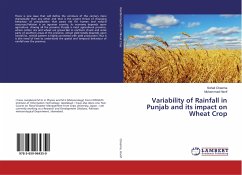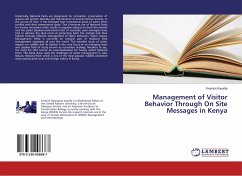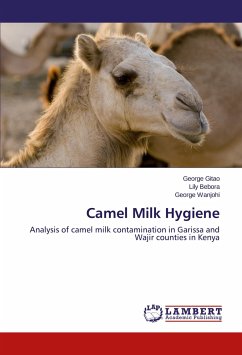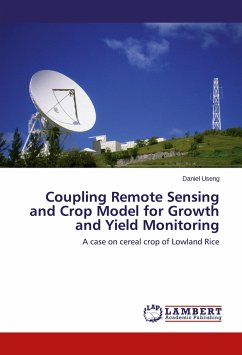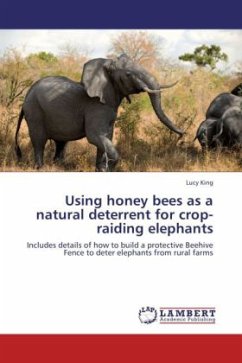
Using honey bees as a natural deterrent for crop-raiding elephants
Includes details of how to build a protective Beehive Fence to deter elephants from rural farms
Versandkostenfrei!
Versandfertig in 6-10 Tagen
52,99 €
inkl. MwSt.

PAYBACK Punkte
26 °P sammeln!
The African elephant is perhaps the most iconic migratory land mammal on the continent, but catastrophic poaching in the 1970's and 80's saw their populations plummet. The effective ivory trade ban in 1989 has seen elephant numbers recover, but their migratory paths are now limited by human population expansion. Elephant crop-raids on farms are increasing and clashes with farmers can be fatal. This study explores elephant behaviour in relation to a unique natural threat in the wild - that of African honey bees. Elephants are shown to run from the sound of disturbed bees and when doing so, emit...
The African elephant is perhaps the most iconic migratory land mammal on the continent, but catastrophic poaching in the 1970's and 80's saw their populations plummet. The effective ivory trade ban in 1989 has seen elephant numbers recover, but their migratory paths are now limited by human population expansion. Elephant crop-raids on farms are increasing and clashes with farmers can be fatal. This study explores elephant behaviour in relation to a unique natural threat in the wild - that of African honey bees. Elephants are shown to run from the sound of disturbed bees and when doing so, emit a unique low frequency alarm call that warns other elephants to retreat. This discovery led to the application of live honey bees, in the form of an innovative beehive fence network, to keep elephants away from farmland. Farmers benefit from fewer crop-raids on their farms as well as profiting from honey sales. This research, and the application of the theory in three communities in Kenya, shows how diversifying livelihood strategies and reducing human-elephant conflict can benefit poor rural farms and help to protect elephants from fatal confrontations.




